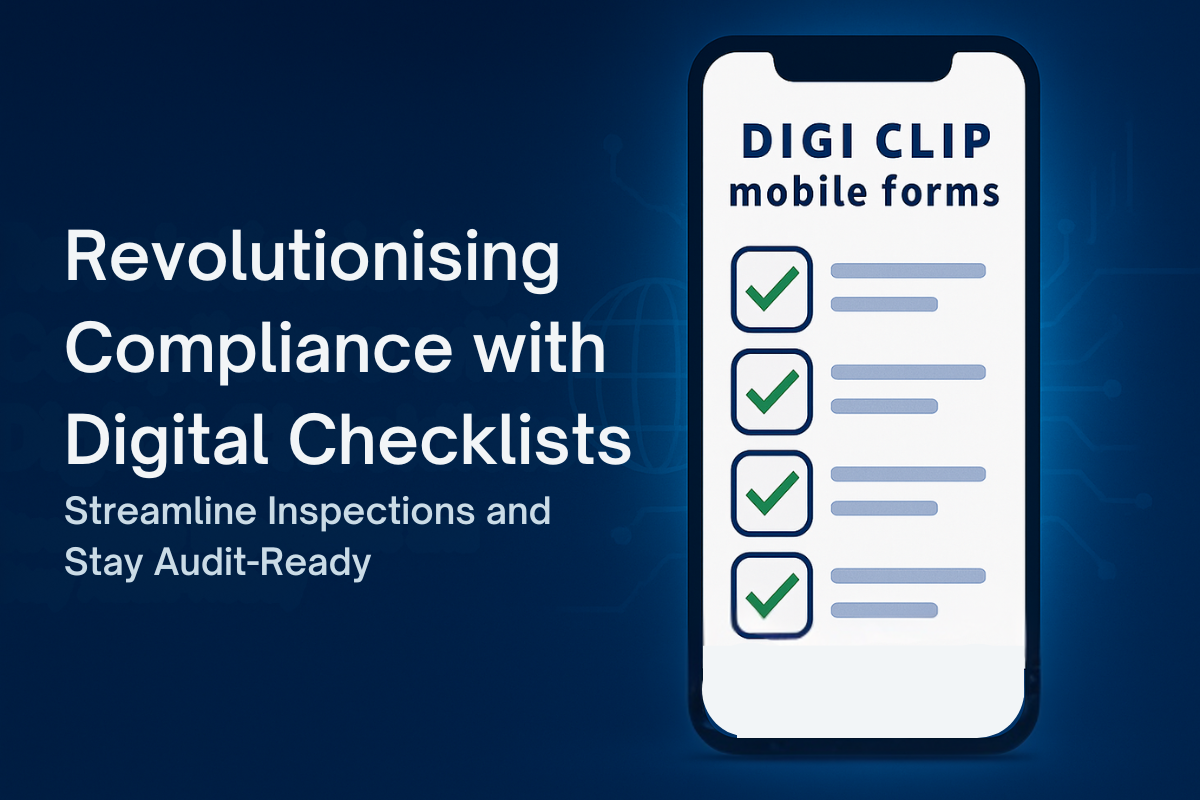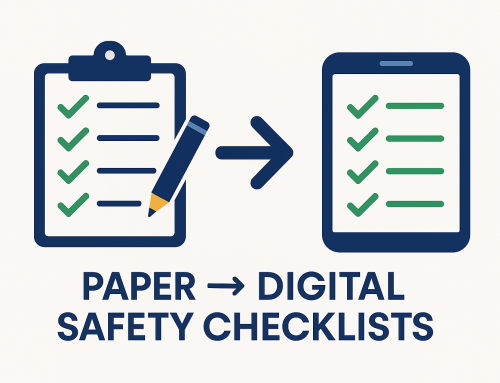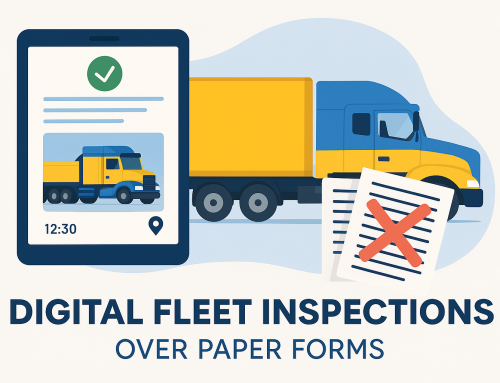Pre-Trip Car Safety Inspection Checklists: The Complete Guide
Use pre-trip car safety inspection checklists to prevent breakdowns, document roadworthiness, and meet WHS requirements. This guide shows what to include, how to roll it out, and how DIGI CLIP makes it evidence-ready for audits.
- Standardise daily pre-trip car safety inspection checklists to reduce roadside failures and improve duty-of-care.
- Capture photo evidence, geo-time stamps, signatures, and send failed items straight to an Action Register for close-out.
- Prove compliance during audits with tamper-evident records and automated notifications.
- Scale across sites and drivers with templates, required fields, and consistent reporting.
What are pre-trip car safety inspection checklists?
Pre-trip car safety inspection checklists are structured, repeatable forms drivers complete before starting a journey. They ensure critical items—tyres, brakes, lights, fluids, safety equipment, and documentation—are inspected and any issues are recorded with evidence and follow-up actions. In the event of an incident or audit, the checklist becomes credible proof that reasonable steps were taken to maintain roadworthiness.
Why pre-trip car safety inspection checklists matter for WHS, roadworthiness & compliance
- Preventative safety: Identify defects early so vehicles aren’t driven with unsafe faults.
- Compliance proof: Evidence-rich records help demonstrate due diligence to management, insurers, and regulators.
- Operational uptime: Fewer breakdowns and unplanned downtime mean reduced costs and missed appointments.
- Culture of safety: Consistent pre-start routines strengthen behaviours and expectations on the road.
Further reading: digital checklists for workplace safety and enhancing compliance audits with digital tools.
What to include in a pre-trip car safety inspection checklist
Use these categories as your baseline. Configure required fields for critical items and collect photos where appropriate.
1) Exterior & Tyres
- Tyre tread depth & condition; inflation pressures incl. spare
- Wheel nuts secure; no cracks or damage to rims
- Windscreen, mirrors, windows clean; no chips obscuring view
- Wipers & washers functioning; washer fluid topped up
- Lights: headlights, high beam, indicators, brake, reverse, hazards
2) Under the Bonnet
- Engine oil, coolant, brake & power steering fluid levels
- Battery secure, no corrosion; belts/hoses intact
- No obvious leaks; no unusual smells
3) Cabin & Controls
- Seat adjustment & head restraints; seatbelts condition and latch
- Horn, demister/defroster, air-con, dashboard warning lights
- Brakes feel normal; parking brake holds
- Steering responsive; no vibration or pull
4) Safety Equipment & Documents
- First aid kit, fire extinguisher (if required), warning triangle
- Vehicle registration & insurance current
- Emergency contacts accessible; phone mount/charger
5) Load & Journey Readiness
- Cargo secure; no loose objects in cabin
- Fuel level adequate; route & weather checked
- Any defects noted & assigned to an owner with a due date
Tip: Failed items should automatically create an action in your Action Register so nothing gets missed.
Digital vs paper: which is better for pre-trip car safety inspection checklists?
| Capability | Paper | Digital (DIGI CLIP) |
|---|---|---|
| Evidence quality | Text only, easy to lose | Photos, geo-time stamps, signatures; tamper-evident |
| Defect follow-up | Manual calls/emails | Auto-create actions in central Action Register with owners & due dates |
| Audit readiness | Hard to retrieve | Instant search, export to CSV/Excel and PDF; bulk PDF; email critical alerts to supervisors |
| Consistency | Varies by driver/site | Standard templates, required fields, guidance text |
| Scalability | Manual collation | Real-time dashboards & analytics for trends and risks |
See also: top benefits of digital inspection apps for compliance.
How to roll out pre-trip car safety inspection checklists (step-by-step)
- Define scope & risks: Vehicles, drivers, routes, and key failure modes.
- Build your template: Use the categories above. Mark critical items as required, add image capture prompts, and signature.
- Pilot with a small group: Collect feedback on clarity and duration; refine wording.
- Enable close-outs: Route failed items to your Action Register with owners and due dates.
- Train & launch: Short toolbox talk; show drivers how to capture clear photos and add comments.
- Monitor & improve: Review weekly trends, repeat offenders, and average time-to-close actions.
Prefer authority reading? Try RMIT’s research on digital safety knowledge sharing (PDF).
Using DIGI CLIP for pre-trip car safety inspection checklists
- Evidence that stands up: Photos, geo-time stamps, signatures on every submission.
- Automatic workflows: Failed items create actions in a central register with reminders until completion.
- Search & export: Retrieve by vehicle, driver, date, or status; export to CSV/Excel and PDF.
- Mobile-first: Simple, fast, and consistent on the go. Forms can be submitted when connectivity returns.
- Multi-site ready: Templates roll out across locations while managers see one consolidated view.
Related reading: top 10 items every pre-start checklist should include.
FAQs: Pre-Trip Car Safety Inspection Checklists
What is a pre-trip car safety inspection checklist?
How often should drivers complete the checklist?
Are pre-trip checks mandatory?
Why use a digital checklist instead of paper?
Can drivers complete checklists offline?
How do failed items get closed out?
About DIGI CLIP Mobile Forms
DIGI CLIP is a mobile checklist and inspection app that simplifies safety, compliance, and operational reporting. Designed for industries like transport, warehousing, agriculture, and construction, DIGI CLIP replaces paper forms with real-time digital checklists. Built-in photo capture, automated alerts, geo-time stamping, and an Action Register ensure nothing gets missed.
Why try DIGI CLIP? Because safety actions don’t count if you can’t prove them. Start your free trial—no credit card needed—and see how simple compliance can be.
Conclusion: Make pre-trip checks effortless—and provable
Implementing pre-trip car safety inspection checklists is one of the simplest ways to prevent breakdowns, improve roadworthiness, and demonstrate WHS due diligence. With DIGI CLIP, you’ll capture photos and geo-time stamps, route failed items into a central Action Register, and export audit-ready records in seconds. That’s how you build a safer fleet and a stronger safety culture—day after day.
Keep exploring
If you liked this post? Why not share it!








Leave A Comment